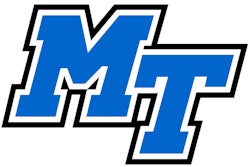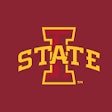What impact the new Division I college football playoff will have on regular-season scheduling is anybody's guess right now, since the makeup of a selection committee and criteria won't be determined until late April. That's when it might be known how much weight strength of schedule will carry when the first four-team playoff field is picked following the 2014 season.
However, the practice of schools from the major Division I football conferences scheduling non-conference games against teams representing the Football Championship Subdivision (formerly known as Division I-AA) may be coming to an end, if word out of the Big Ten Conference earlier this week is any indication.
During his weekly radio show Tuesday night, University of Wisconsin athletic director Barry Alvarez indicated that the Big Ten would no longer schedule FCS opponents, saying, "The non-conference schedule in our league is ridiculous." This, from a man whose school has made a steady diet of FCS opponents - Western Illinois, The Citadel, Cal Poly, Wofford, Austin Peay, South Dakota and Northern Iowa - over the past seven seasons. The Badgers will host Tennessee Tech this fall.
But Wisconsin is hardly the lone practitioner. Alabama has won three of the past four national championships, defeating an FCS opponent in each of those seasons by a combined score of 139-21. Florida beat an FCS opponent in each of its 2006 and 2008 national championship runs (combined score: 132-19). In 2010, eventual national champ Auburn beat Georgia Southern, 45-21.
The University of Tennessee-Martin wasn't among those stepped on during the Southeastern Conference's impressive parade of recent national champs, but it has played three SEC teams since 2008. Athletic director Phil Dane told USA Today that he hopes the Big Ten's scheduling proposal doesn't start a nationwide trend. "If the SEC should follow that trend, it would be a major concern for us because football guaranteed games are a very significant part of our business," Dane said.
How significant? FCS member Northern Iowa received $500,000 to play at Iowa last season, and another $450,000 to travel to Wisconsin. That sum total covered roughly a third of the Panthers' annual football budget. "I would tell you it's potentially devastating," UNI athletic director Troy Dannen told the Des Moines Register. "And not just because we wouldn't play Iowa anymore, but to FCS schools in general."
According to USA Today, 79 of the 122 FCS schools played at least once against FBS competition last season. Appalachian State, which came away from a September 2007 trip to Michigan with $400,000 and a 34-32 victory, is banking on $850,000 for a return trip to Ann Arbor in 2014. AD Charlie Cobb told the paper via email, "Just like many FBS schools from the non-equity BCS conferences, FCS programs count on playing these games for unique fan opportunities, a 'David vs. Goliath' moment for their student-athletes and the attractive game guarantees that help make athletics budgets work on an annual basis."
With new members Maryland and Rutgers, the Big Ten is considering an expanded regular-season conference schedule, which in turn would demand more judicious non-conference scheduling. TV contract renewals may also factor into how major conference schools choose their non-conference opponents. "There's a lot more value when BCS plays BCS than there is when BCS plays MAC, Sun Belt and Missouri Valley," Dannen conceded.
But the influence of strength of schedule on postseason possibilities may ultimately trump all else. "Until the NCAA football selection committee discloses its selection criteria, I think it's too early to determine the exact effect we'll see on the scheduling philosophy of FBS programs," says Kevin Barefoot of Winthrop Intelligence, a firm that compiles game contract data. "If that criteria doesn't impact the desirability of scheduling FCS opponents, I don't think we'll see much change. However, if FBS programs determine that scheduling FCS opponents doesn't make sense in the new playoff environment, game prices could fluctuate because there will be the same number of schools vying for even fewer paid road games."
"If you're signing a contract and there are a lot of people who want to play, they can afford to ask you to take less money," UT-Martin's Dane told USA Today. "It's just like any other supply and demand."





































